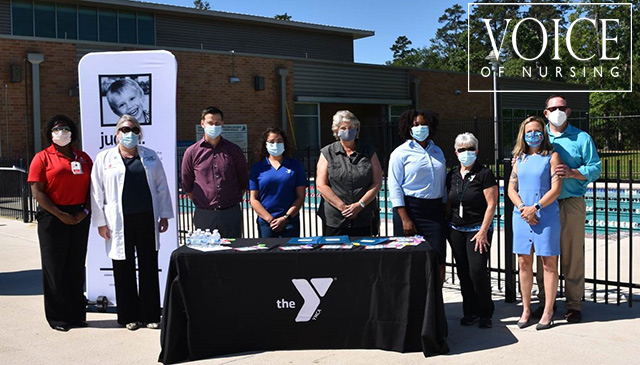
In collaboration with our community partners, Juanna Brandon introduces us to the SPLASH program that focuses on creating layers of protection to keep children safe while in the water. Read more

In collaboration with our community partners, Juanna Brandon introduces us to the SPLASH program that focuses on creating layers of protection to keep children safe while in the water. Read more
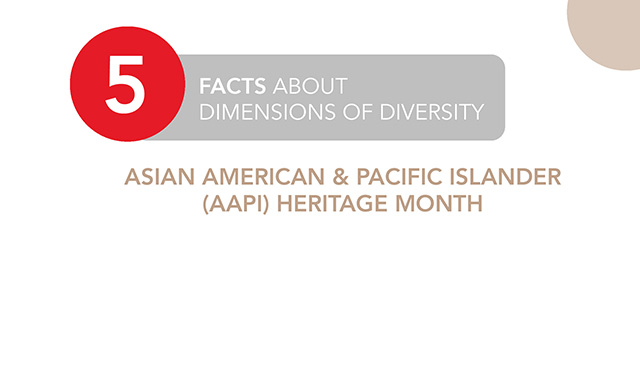
May is AAPI Heritage Month! Learn more about this national celebration, AAPIs in the U.S. and within our team, and key issues affecting our AAPI communities. Read More
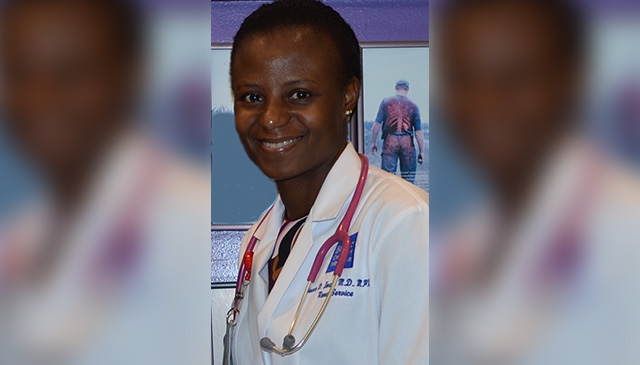
After being awarded a grant to help nurture partnerships between kidney centers in low-resource and high-income countries, Texas Children’s physician Dr. Peace Imani is collaborating with colleagues in Uganda to raise awareness and improve care for patients and families facing childhood kidney disease.
The grant award came early last year from the International Society of Nephrology’s (ISN) Sister Renal Centers Program. The program uses training exchanges to build bridges between supporting centers like Texas Children’s and Baylor Foundation Uganda, and emerging centers like the Renal Clinic at the Mulago National Referral Hospital in Kampala, Uganda.
For Imani, the opportunity to connect with Ugandan clinicians is reminiscent of her time training and working in Uganda before moving to Houston. She continues to volunteer in the renal clinic when she has a chance to return home.
“It’s incredibly rewarding to share knowledge and experiences that can make a difference,” Imani said. “I am grateful to partner with a dedicated and enthusiastic pediatric nephrology team in Uganda. I am familiar with the challenges faced by my colleagues, and being able to support them – even amidst the COVID-19 pandemic and travel restrictions – has been remarkable.”
Read on for more of Imani’s thoughts about her ongoing work with Uganda, including a recent online nephrology lecture series supported by the ISN grant funds.
What are some of the challenges that you and your colleagues are working to address in the practice of pediatric nephrology in Uganda?
Kidney disease in children ranges from reversible disorders without long-term consequences, to diseases that are progressive and only get worse over time.
Early patient identification and management to reverse or delay disease progression is crucial especially in place where access to health care services is very limited. From our recent study, we found that a majority of children with chronic (irreversible) kidney disease in Uganda presented in advanced disease stages. At these later stages life, sustaining dialysis and/or kidney transplantation are imperative – yet these services are not readily accessible to a majority of these families.
What are your plans for the online lecture series?
In collaboration with the two pediatric nephrologists in Uganda, we developed an interdisciplinary professional education curriculum on pediatric nephrology in resource-limited settings, which is being delivered as a bi-weekly virtual synchronous lecture series hosted via Zoom. In addition, we will use this forum to present and discuss relevant clinical cases with subject matter experts.
What do you want to share with those who attend the lectures?
Our target audience is diverse, including nurses, medical students, pediatric post-graduate students, clinical officers, physicians and other allied health professionals involved in pediatric care across various practices in Uganda. Our goals are to raise awareness of childhood kidney disease, improve early diagnosis and management, and to facilitate the referral process to the Renal Clinic at the Mulago National Referral Hospital.
How are the grant funds helping to bring your vision for the lecture series to life?
The ISN funds are used to facilitate participants’ access to Internet services needed to attend the online lecture series. We have also used some of the funds to facilitate local radio talk shows to raise awareness of childhood kidney disease, and encourage referral to the renal clinic.
In addition, we plan to develop a patient database that we can use for follow-up, as well as advocating for more comprehensive pediatric renal services.
Why is it important for Texas Children’s to be involved in international educational exchanges like this?
The mission of Texas Children’s Hospital is to support excellence in patient care, education and research with a commitment to quality service and cost-effective care to enhance the health and wellbeing of children not only locally but internationally as well. An experienced center such as TCH is instrumental as a supporting center for this SRC partnership to be successful. TCH’s global health experience and the wealth of expertise in pediatric nephrology is unparalleled.
Once the series has concluded, what’s next for your work in Uganda?
This is only the beginning! I will continue to look for innovative ways to develop and support the pediatric nephrology program in Uganda.
Our focus for the first two years is on multidisciplinary educational exchanges between the emerging center and supporting center, which are at the moment bi-weekly. We plan to invite guest speakers from the two partnering institutions.
My long-term goal is to support the development of a pediatric kidney center of excellence at the Mulago National Referral Hospital – a center that provides comprehensive kidney care, education of health care providers, and engages in translation and scientific research. And hopefully, a center that has the capacity to provide acute and chronic dialysis, and eventually kidney transplantation, services that are lacking at this time.
Texas Children’s Global Health Network is one of the largest providers of pediatric HIV care in the world, with an expanded scope that also includes tuberculosis, malnutrition, Sickle Cell Disease, oncology, cardiology, emergency medicine, surgery, anesthesiology and maternal health. For more on the programming in Uganda, click here.

Life is busy, especially more so during the pandemic. As we continue to navigate our reconstructed future, it is more important than ever to keep healthy and strong for ourselves, and our families and friends.
As part of our commitment to your total well-being, Texas Children’s Employee Health and Well-Being teams have organized a variety of programs and resources around Women’s Health Month to help refresh your focus on your physical, mental and emotional well-being. Watch for more on Connect.
This week, we are focusing on your emotional well-being.
Social Connections: Feeling socially connected, especially when physically distanced, is more important than ever. Studies show that friendships and social connections provide intellectual stimulation and emotional support through hardships. People who provide you with a sense of belonging, love or value can be buffers against stress. Here are some ways to create and establish your social network:
Be Kind: To others and especially to yourself. We are still in a pandemic and it is okay to feel hopeful about the future as more people are becoming vaccinated but at the same time, anxious about our reconstructed future. Continue to surround yourself with people you trust and can reach out for support and do the same thing for them as well. Coming together as a community is how we have navigated the pandemic thus far and will continue to do so. If you need additional assistance to support your emotional or physical well-being, our EAP and Well-Being teams are here for you at 832-824-3327 and 24/7 at our EAP and Well-Being websites.
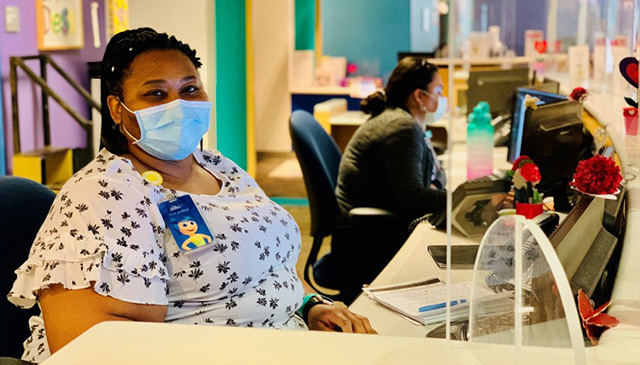
Read how Jennifer Franklin and her family overcame her hesitancy to get the COVID-19 vaccine to protect everyone she comes in contact with every day. Read more

Amanda Wenger shares how a writing workshop experience, and other forms of art, provided her with an outlet for self-expression, stress relief and healing during life’s challenges. Read more
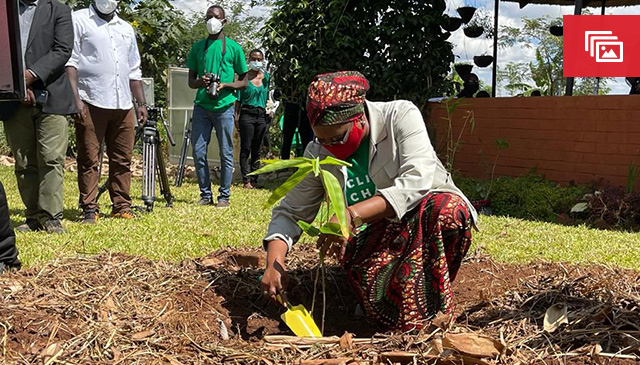
Texas Children’s Global Health partners at the Area 25 Health Centre in Malawi planted giant bamboo seedlings in its permaculture garden to recognize Earth Day, and to celebrate the lasting connections between human and environmental health.
An average of 20 babies are delivered each day at the health centre in the Malawian capital city of Lilongwe, where Texas Children’s and Baylor College of Medicine launched a Global Women’s Health program in 2012 in partnership with the Ministry of Health of Malawi and Baylor Foundation Malawi.
With a lack of access to health care services and limited resources in many settings, Malawian women experience 675 deaths per 100,000 live births; in the United States, the ratio is 14 deaths per 100,000 births. Texas Children’s Global Health is working to improve the odds for Malawian moms through transformative programs that benefit thousands of women and babies.
One such effort is the Permaculture Program at Area 25, which focuses on establishing a safe, nurturing environment for all patients receiving care at the facility – particularly pregnant women staying at the maternity waiting home. The vibrant permaculture garden is designed as a human-centered landscape, and based on a system of sustainable agriculture that promotes harmony with the local environment and natural ecosystems.
For Earth Day, Malawi Minister of Forestry and Natural Resources Nancy Tembo and U.S. Ambassador to Malawi Robert Scott joined health centre officials in the permaculture garden for a symbolic planting of giant bamboo. They also distributed seedlings to patients, which they’ve done for more than 3 years.
The distribution supports environmental stewardship by creating a relationship between the mother, her child and the seedlings she takes home. As the child grows, so do the plants, providing the family with new sources of food and firewood.
“The symbolic planting of the bamboos is a manifestation of the ministry’s commitment to healing the earth, using bamboo as a candidate species for landscape restoration and improved livelihoods,” Tembo said after the event.
Through the USAID Agricultural Diversification Project, the permaculture garden at Area 25 also supports nutrition and productivity. The space is a demonstration site for soya milk and mini drip kits, as well as drip irrigation and distribution of PICS bags to patients that allow for storage of grains without the use of insecticide.
Texas Children’s Global Health Network is the largest provider of pediatric HIV care in the world, with an expanded scope that also includes tuberculosis, malnutrition, Sickle Cell Disease, oncology, cardiology, emergency medicine, surgery, anesthesiology and maternal health.